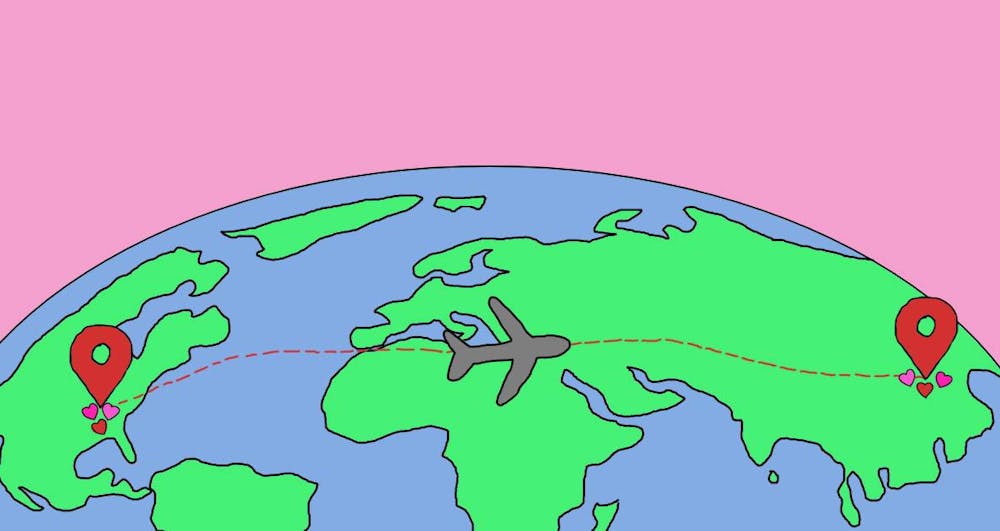The first time I held one of Eileen Chang's writings — a Chinese novella called “Love in a Fallen City” — I was in eighth grade. At the time, I was a student in Beijing and had barely traveled outside of my country. The novella, which seemed full of historical descriptions, had disappointed me then. Until this winter break, I had not opened the book for years. After six years of living in the United States as an international student, however, I read Chang’s novella again and discovered a story about how it feels to live in between two worlds.
My mother had always admired Eileen Chang. She would tell me how Chang wrote about love in its most vivid, beautiful forms. So, as an eighth-grader, I had picked up the novella expecting a romantic coming-of-age story. Instead, the first story in the book was about a European-Chinese mixed race boy in wartime Hong Kong and women leaving their home during the war. I closed the book, feeling uninterested in the historical context.
Yet, similar to Chang’s characters, I left China. I arrived in the U.S. for school at the age of fifteen. I cannot remember why I had to move. Maybe it was for the easier math classes or the fact that I could be free from my parents. What I do remember, though, was that two weeks after school started, I missed home. I struggled to relate to my classmates. Although I spoke English well, I could not understand their references, from American television shows to “vines” on YouTube. I could not bridge the culture gap that separated me and my friends.
I felt like a listener trying to fit in, the “international girl” who would always jot down Chinese in the margins of her chemistry notebook. For a long time, I hated being labeled as an “international student.” At the same time, I felt disgusted by myself for not wanting to embrace my Chinese identity.
I always believed that the Chinese part of me would never disappear. But then it did start to fade. My friends began to joke that I looked more American than Chinese. I found myself punctuating Chinese sentences with English rules. I struggled to handwrite Chinese characters themselves. I thought of my best friend in China — a girl who studies Biology and lives in a college dorm just like me, but who is doing it all in China, reading Chinese books and walking China’s streets. I had lost ties with her.
This is my sixth year in America. I have familiarized myself with the culture, and my English has improved, but that has come with a price. I cannot write a full sentence in one language without thinking about a word in another. I learn terms in English and Chinese that are supposed to mean the same thing but whose definitions often do not overlap. They say when you can speak many languages, you actually speak none. This is how I feel, living in two different countries but belonging to neither.
As an international student, I grew up in one country and received education in another. I felt stuck in the root “inter” — in between. I felt that I would always be a drifter between continents.
Then, this winter, after living halfway across the world, I picked up “Love in a Fallen City.” Chang’s words were the same — the traveling of Chinese women and Europeans in wartime Hong Kong — but the story was different. I started to understand it.
Chang herself moved from Shanghai to Hong Kong after the war, then eventually moved to California. Throughout her travels, she continued to write, and her books capture the global views she gained from her journey. Like me, Chang was a drifter with an undefinable nationality.
Reading Chang’s book, I now call it a love story because I realized that the “international” label can also become the new “home” for me. I can read books in two different languages. I can understand and talk to people beyond divisions in society. I can travel on a fourteen-hour flight and still find a bed for myself across the world.
Dr. Nicole Huang, a literature professor at Hong Kong University, once commented that Eileen Chang would not be as renowned a writer today had she never moved to Hong Kong and started her global journey. Similarly, I would not be the same person I am today had I never left China and experienced life outside of the country. Being “in-between” challenged me. But it has come to expand my horizons, allowing me to call the whole world my home.







